The Forefront Guide to House Hacking in Real Estate
Looking to get into real estate investing? Real estate investing may be able to build long-term wealth and financial independence when done right. Rental properties can be a stable source of passive income in addition to providing many other benefits, such as the potential to reduce your housing costs and build equity in each property you own. In recent years, the financial independence retire early (FIRE) movement has found its way into the mainstream, so a renewed focus on real estate investing has emerged as a path towards achieving an early retirement goal. Regardless of your reasons for getting into real estate investing, it’s important to understand the complete picture of what is involved before you invest. Real estate investing is not for everyone, so if you do choose to do it, you should be well versed in the risks involved and the different strategies you can employ to help your success. One strategy that has arisen alongside the FIRE movement goes by the term “house hacking.” This strategy involves buying a multifamily property and owner-occupying it by living in one of the units while renting out the other units to help subsidize some or all of the housing costs. This guide to house hacking in real estate will cover everything you need to know about this real estate investing strategy from the essential basics to some of the more advanced nuances and how you can make this strategy work for you.
The Basics of House Hacking in Real Estate
“House hacking is a real estate investing game plan,” according to Ryan Groeneweg, a Mortgage Loan Originator for Mortgage Brokers of Alaska in Anchorage, AK and an experienced house hacker himself, “it’s essentially a way to generate income from your home or live mortgage-free or almost for free by buying a small multifamily real estate property, living in one unit, and renting out the others.”
If this strategy is employed correctly, it can cover most or all of your costs of living and maintaining the property, or even produce some positive cash flow. The specific property used could be a duplex, triplex, fourplex, a single-family house with spare bedrooms or an accessory dwelling unit (ADU), such as a mother-in-law suite or separate structure in your backyard, or any other multi-family capable dwelling for that matter.
The Benefits of House Hacking in Real Estate
With a solid gameplan, there are many potential benefits you can reap from a house hacking strategy, including:
Better financing terms for owner-occupants. If you live in the rental property as your primary residence, you can benefit from lower interest rates and more attractive terms than an investment property you don’t live in. If you hold onto the property long-term, you can keep this financing in place even after you move out.
Potentially smaller down payments. We cover financing options in more detail below, but if you are a military veteran or first-time homebuyer, you might qualify for a VA or FHA loan where down payment requirements can range from as little as 0% to 5% of the purchase price, compared to the minimum 15% down payment that’s typically required by most mortgage lenders for investment properties.
Passive Income. If your rental income exceeds your costs of owning and maintaining the property, then you have created a passive income stream. As you buy more properties and rent out the others, you can continue creating new passive income streams from each. People always need a place to live and stay, so real estate can provide a steady, stable income that also provides some inflation protection when rents go up.
Launchpad for additional properties. According to realtor and experienced house hacker, Tyler Bogert, of Aspire Realty Group in Anchorage, AK, “if you are effectively living for free in your house-hack property, you can free up a lot of cash flow to save for the down payment on your next property.” Housing costs tend to be the greatest monthly expense for any individual or household, so significantly reducing or eliminating that cost can be very positively impactful.
Additionally, “you can use up to 75% of your total reported monthly rental income to help qualify for a new mortgage”, says Ryan Groeneweg, “which can make the mortgage approval process easier and increase your overall purchasing power as you acquire more and more properties.”
Also, if you are looking to convert your current primary residence to a rental while simultaneously buying a new property, it’s important to note that some lenders will let you do this if you have a signed lease agreement with the first month’s rent and security deposit for your current property already in place.
SCHEDULE A VIRTUAL COFFEE MEETING
What Types of Properties Work for House Hacking?
Any property that has multi-family living capabilities has potential for house hacking purposes. Duplexes and fourplexes tend to be the most sought after for house hacking purposes because they tend to have a lower barrier to entry at their price points, generate good rental income and are more prevalent in local real estate inventories than other types of properties are. However, other properties that can also work well for house hacking may include:
- Triplexes (3 units)
- Accessory Dwelling Units (ADUs; basically mother-in-law suite on the same property as single-family home)
- Spare bedrooms
- Mobile home or RV rentals
At the end of the day, finding which property will make the most sense for you requires diving into the numbers and understanding what will be realistic and feasible from a financial perspective. You’ll need to understand what your budget is, what your financing terms will look like, how easily you can expect to get a renter, and how much you can rent your other unit(s) for, and let that drive your property type decision.
How to Run the Numbers on a House Hack
Running the numbers on your potential house hack properties is an imperative part of your house hacking roadmap. You must approach this step like a for-profit business owner, with the ultimate goal of ensuring your revenue exceeds your expenses.
The first step in this process is to calculate your net operating income (NOI). Your net operating income will tell you how much rental income you can expect to net out before paying your mortgage and income taxes. This number can then be compared against your expected mortgage payment to see how much of your mortgage can be covered by your rental income. This formula is as follows:
Gross Rental Income
– Vacancy/Credit Loss Reserve
– Property Taxes
– Property Insurance
– Maintenance & Repairs
– Utilities not covered by tenants
– Other expenses (eg. license)
= Net Operating Income
In the real world, this could look like the following example:
Gross Rental Income – $2,500 per month
– Vacancy/Credit Loss Reserve – 5% = $125/mo
– Property Taxes – $400/mo
– Property Insurance – $80/mo
– Maintenance & Repairs – $200/mo
– Utilities not covered by tenants – $50/mo
– Other expenses (eg. license) – $10/mo
= Net Operating Income – $1,635 per month
Once you know what your estimated NOI is, you can go to your licensed mortgage broker to get a preapproval and loan quote for the property to compare against. In the above example, we could assume the mortgage is $1,000/mo for principal and interest on a 30-year loan so the monthly profit would be $635 per month ($1,635/mo NOI – $1,000/mo P&I).
Understanding Your Financing and Down Payment Options
There is no shortage of lenders and loan programs out there for buying real estate, but not all lenders are created equal. If you want the best terms on a mortgage, make sure to do your homework first. Don’t settle on the first option you find and shop your loan quotes around to different lenders to find the terms that best suit you and your needs.
Additionally, you should be aware of the basic fundamental requirements of securing a mortgage. Factors such as your debt-to-income ratio, your credit score, and your liquid cash reserves can all play into your ability to qualify for a loan. We recommend you work closely with your licensed mortgage professional to see what specific requirements will be required to borrow the money for your purchase.
Regardless of the lender you choose or their specific borrowing requirements, there are some standard mortgage loan programs that may be available to you depending on your current situation. These include:
FHA Loans. They are backed by the Federal Housing Administration (FHA) and have “less stringent credit score requirements than other types of loans, with down payments as low as 3.5%” according to Ryan Groeneweg. To qualify for an FHA loan, the following criteria must be met:
- The property must be appraised by an FHA-approved appraiser.
- It must be considered your primary residence.
- You must occupy the property within 60 days of closing.
- An inspection must occur with results that meet the minimum property standards.
With the lower down payment requirements, FHA loans don’t require private mortgage insurance (PMI), but they do require an upfront mortgage insurance premium and a mortgage insurance premium (MIP) to be paid instead. You can also often roll your closing costs into the loan.
FHA loans are generally fairly easy to secure for single-family homes and duplexes, but with triplexes, fourplexes, and other multi-family properties, the underwriting process is more stringent, but still doable as long as the property is owner-occupied, and the loan-to-value ratio meets at least 85% for two units or 75% for 3 or more units.
VA Loans. VA loans are only available to you or your spouse if you meet the minimum military service requirements set by the Department of Veterans Affairs (VA), have a valid Certificate of Eligibility (COE), and you satisfy the lender’s credit and income requirements.
VA loans do not require you to make a down payment nor have excellent credit, and they don’t require mortgage insurance. With no down payment required, VA loans are an easy pairing to a house hacking strategy if you are eligible for them.
Conventional Conforming Loans. Conventional conforming loans are mortgage loans with terms and conditions that meet the funding criteria for Fannie Mae and Freddie Mac, which are federally backed home mortgage companies created by the U.S. Congress. Fannie Mae and Freddie Mac do not originate or service mortgages but instead, buy and guarantee them through lenders in the secondary mortgage market.
For 2022, the limit for a conventional conforming loan is $647,200. However, this number can vary slightly by state and property type. Nonetheless, if you have excellent credit, they tend to offer the lowest interest rates compared to other types of mortgages and have down payment requirements as low as 3.5%. If you make a low down payment, however, you may be required to purchase mortgage insurance.
Conventional Nonconforming Loans. Conventional nonconforming loans, also commonly known as jumbo loans, are mortgages that do not meet the funding criteria for Fannie Mae or Freddie Mac. In other words, the loan will typically exceed the $647,200 limit set for 2022 or it will become nonconforming based on your loan-to-value ratio (down payment size), debt-to-income ratio, credit score, history, and/or documentation requirements.
The interest rates are typically not as good as other types of loans and the credit score requirements are typically more stringent, but the down payment can be as low as 3%. Additionally, jumbo loans typically require 18-24 months of liquid reserves for the projected mortgage payments. This money can be in checking, savings, or brokerage accounts, for example, as long as you can prove liquidity. Like conventional conforming loans, if a low down payment is made, mortgage insurance may be required.
SCHEDULE A VIRTUAL COFFEE MEETING
The Challenges of House Hacking in Real Estate
As we mentioned at the beginning of this article, house hacking, and real estate investing, in general, are not for everyone. Many people simply don’t want to deal with the headaches that are bound to happen as you venture down this path. Some of the common challenges you may run into can include:
Being a Landlord. Not everyone wants to manage tenants or deal with living with strangers. Screening your tenants and finding a good fit that’s trustworthy, pays their rent on time and is drama-free is often easier said than done.
If you own multiple properties, you may want to consider hiring a professional property manager to alleviate some of the work and stress involved, but be prepared to pay 8-12% of your monthly rent collected to cover this cost.
Finding the Right Property. In times like these where real estate inventory is at historic lows, prices are at historic highs, and interest rates are on the rise, it can be a huge challenge to find the right property.
With low inventory, most homes receive numerous offers and get bid up above the asking price, which could result in less favorable numbers for your “house hack” or make the deal impossible altogether. In these types of environments, your best bet is to have a competitive down payment ready and be prepared to move quickly when you find a property you like.
Maintenance & Repairs Costs. Just like your trusty old car, real estate properties need regular maintenance and repairs. Sometimes these costs can be sudden, substantial, time-consuming, or troublesome to fix. You’ll want to make sure you’re always budgeting for any potential maintenance and repairs costs, and ideally, always keep plenty of cash on hand to cover them at a moment’s notice. If not, maintenance and repairs can quickly put you in the red on your property and create additional financial problems.
Tax Consequences. Rental income from your real estate is considered ordinary income and taxed as such, so you can expect to owe taxes on any profits you generate from your house hacking ventures. Additionally, since rental income is considered passive income, you can only deduct expenses and depreciation associated with each property directly from the income generated from that specific property alone.
If you own multiple properties, the tax aspects of owning them can quickly become cumbersome and difficult to navigate. You’ll want to make sure you work closely with a licensed tax professional throughout the year to ensure you are maximizing your deductions and minimizing your tax liability from each rental property you own.
Tips from our Experts on Getting Started with House Hacking
No matter how much you read or learn about house hacking on your own, there’s no way you can plan for every contingency or obstacle you might run into. As a result, one of the first things you should always do before you venture down the path of house hacking is to assemble your team of professionals.
As Tyler Bogert states, “find a like-minded Real Estate professional who understands your wants and needs. They will be able to find deals and give you input on what the rents and needed repairs will look like on any given property.” Tyler also recommends working with a lender who “understands what you are trying to accomplish.”
He states “there is an abundance of lenders out there but only a few that understand house hacking and the various nuances that play into a smart financing strategy.” Lastly, Ryan Groeneweg recommends setting some goals and knowing your “why”.
“Think about your lifestyle,” he says, “if you have a partner, spouse, or dependents, discuss your goals with them. House hacking is a lifestyle that takes both patience and perseverance, and everybody needs to be on the same page about that.”
SCHEDULE A VIRTUAL COFFEE MEETING
Want More Info or Need Help?
Forefront Wealth Partners, LLC has the tools and resources you need to help you make smarter decisions in your house hacking journey. If you’d like to discuss your current situation and goals with a financial professional, schedule a free virtual coffee meeting today to see how we can help!
Forefront Wealth Partners, LLC, Aspire Realty Group, and Mortgage Brokers of Alaska are not affiliated in any way. The experts used for this article received no compensation for their input and have no financial relationship with Forefront Wealth Partners, LLC or any of its staff.
Real estate investing involves risk, including the potential for loss. Forefront Wealth Partners, LLC is not a licensed real estate brokerage or agent.
Advisory services are offered through Forefront Wealth Partners LLC. Securities offered are through Calton & Associates, Inc., member FINRA and SIPC. Forefront Wealth Partners LLC is not owned or controlled by Calton & Associates, Inc.





